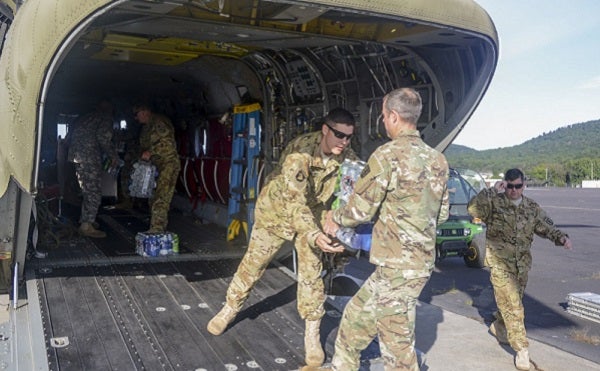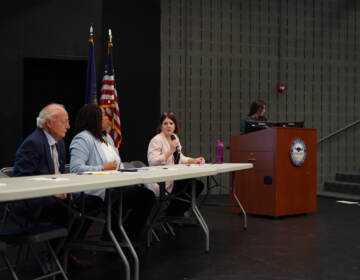Area police departments, National Guard join forces to collect prescription meds
It's the fifth year the guard's Counterdrug Joint Task Force is working with police to collect the drugs from more than 800 drop-off centers around the state.

Pennsylvania National Guard Soldiers load bottled water onto a CH-47 Chinook helicopter September 1 at Fort Indiantown Gap in preparation to depart for the Hurricane Harvey relief effort in Texas. (U.S. National Guard photo by Sgt. Zane Craig)
Four out of five people who use heroin start out on prescription drugs.
Preventing that from happening is one reason Pennsylvania’s Department of Drug and Alcohol Programs is working with the state National Guard and police to get rid of unused narcotics and other drugs.
“While they are necessary, when used correctly, they are dangerous substances. So there’s really no point in delaying getting these things out of your medicine cabinet,” said Pennsylvania Army National Guard Col. Richard Collage, who oversees the task force.
Those medications are also a potential public health problem if flushed down toilets, Collage said.
The only safe way to get rid of them is to incinerate them, he said. That’s what will happen to all those drugs, once his team of soldiers and other service members picks them up.
Throughout the state, community groups are observing “National Drug Take-Back Day,” sponsored by the Drug Enforcement Administration, on Saturday.
It’s the fifth year the guard’s Counterdrug Joint Task Force is working with police to collect the drugs from more than 800 drop-off centers around the state, according to the Department of Drug and Alcohol Programs.
Since 2014, the state program has overseen the destruction of more than 537,000 pounds of prescription drugs, the department said.
Nationally, more than 900,000 pounds of unused medication have been destroyed, preventing misuse and keeping it out of water systems, according to the federal Drug Enforcement Agency.
You can find a drug drop-off site on the department’s website.
WHYY is your source for fact-based, in-depth journalism and information. As a nonprofit organization, we rely on financial support from readers like you. Please give today.




